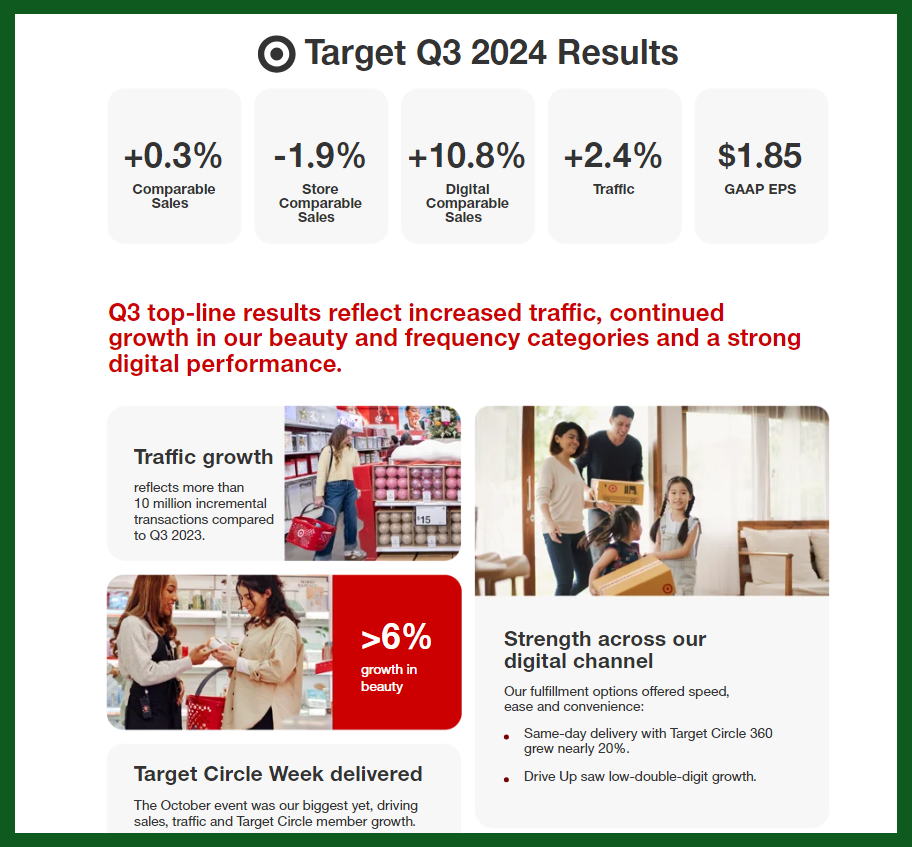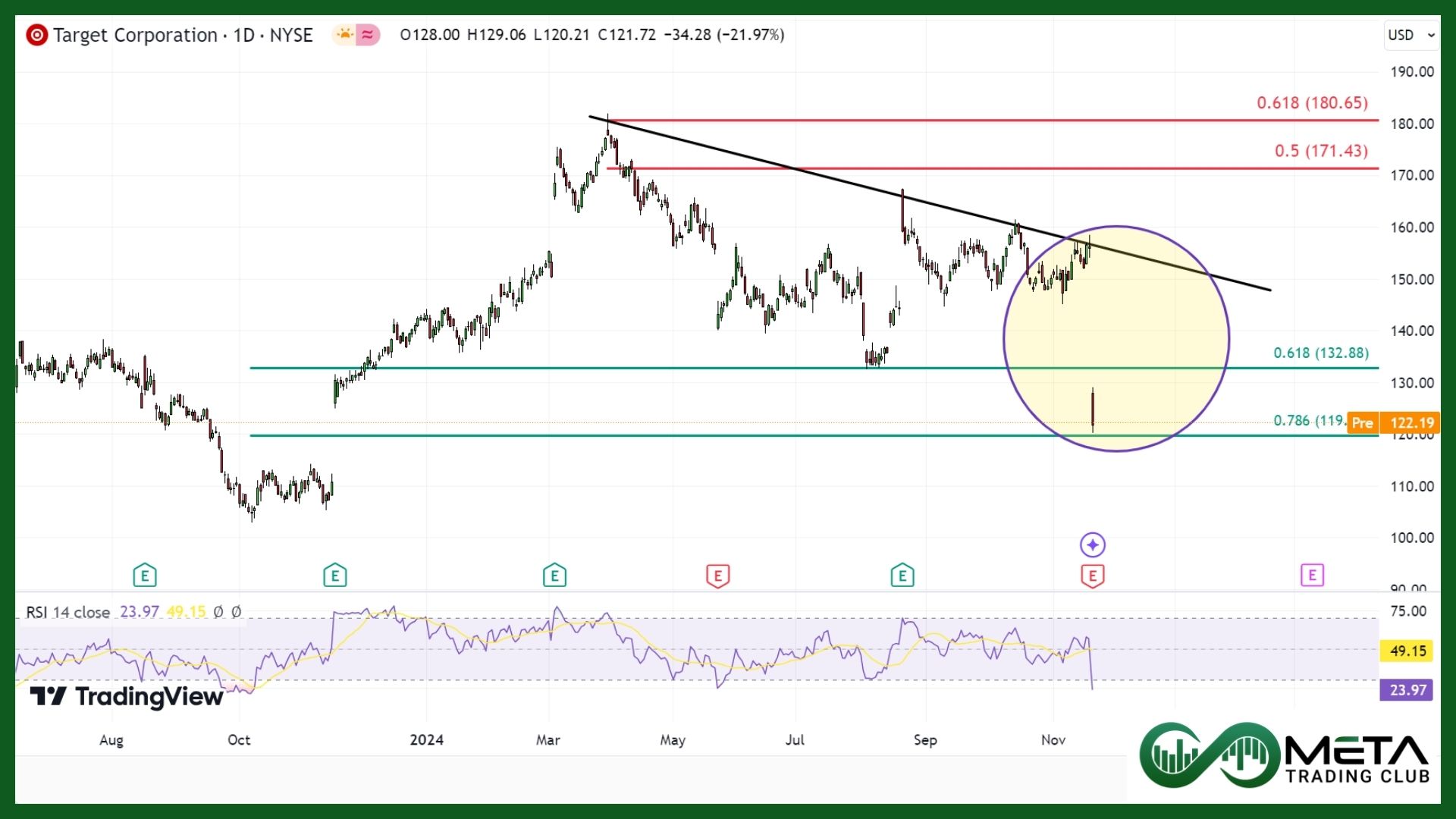Target Corporation, commonly known as Target, is a major American retail corporation founded in 1902. Headquartered in Minneapolis, Minnesota, Target operates a vast network of stores across the United States, offering a diverse range of products including clothing, electronics, groceries, and household goods. Known for its distinctive red logo and design-centric approach, Target has positioned itself as a favorite shopping destination for many consumers seeking quality and affordability. The company is committed to innovation, sustainability, and community engagement, continuously adapting to the changing retail landscape to provide an exceptional shopping experience for its customers.
Target Fiscal Q3 2024
In the third quarter of 2024, Target Corporation (NYSE: TGT) saw a modest comparable sales increase of 0.3%, driven primarily by a 2.4% rise in guest traffic and a 10.8% growth in digital sales. The beauty, food & beverage, and essentials categories performed well, with beauty sales growing over 6%. Despite these gains, the third quarter gross margin rate slightly declined by 0.2 percentage points compared to the previous year.
Key financial highlights include:
- Total revenue of $25.7 billion, marking a 1.1% year-over-year increase. (Below estimates)Third quarter GAAP and Adjusted EPS of $1.85, a decrease from $2.10 in the previous year. Also, EPS missed forecasts.
- Operating income of $1.2 billion, down 11.2% year-over-year.
- An increase in dividends paid and share repurchases, with a 1.8% increase in the dividend per share and $354 million spent on share repurchases.
Outlook for Q4 Fiscal 2024:
Target expects flat comparable sales for the fourth quarter, with GAAP and Adjusted EPS projected to range between $1.85 and $2.45, translating to an annual range of $8.30 to $8.90.
Board Statements
Brian Cornell, Target’s Chair and CEO, expressed pride in the team’s efforts to navigate a volatile operating environment. He highlighted several strengths, including a 2.4% increase in guest traffic, nearly 11% growth in the digital channel, and continued growth in beauty and frequency categories.
However, he also acknowledged unique challenges and cost pressures that impacted their bottom-line performance. Looking ahead, Cornell conveyed confidence in the team’s ability to deliver value and newness to holiday shoppers, and in the underlying strength and fundamentals of their business.
Impact on the Stock Market
The market reacted severely to Target’s third quarter earnings report, leading to a 22% drop in Target’s stock price. This decline was due to the company’s sales and earnings falling short of analysts’ expectations, with revenue of $25.7 billion (below the forecasted $25.9 billion) and net income dropping 12% to $854 million ($1.85 per share).
Additionally, concerns about Target’s lowered earnings forecast for the current quarter and the holiday season contributed to the negative market sentiment, especially in contrast to Walmart’s positive performance and outlook. Investors were clearly disappointed with Target’s performance and outlook, resulting in the significant drop in stock price.















